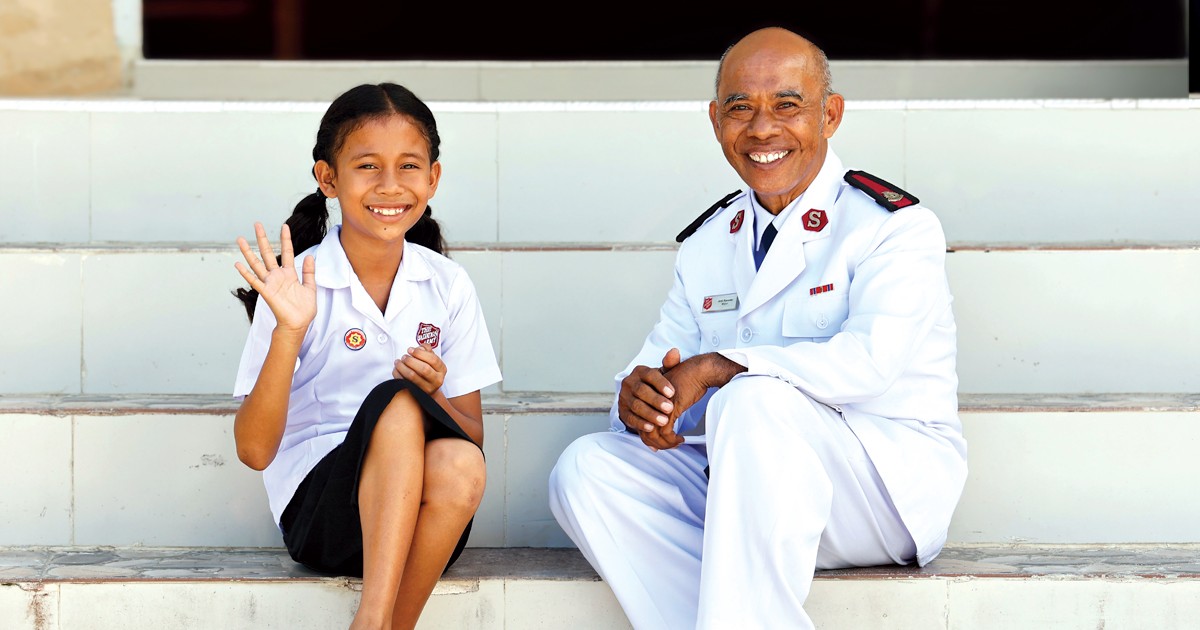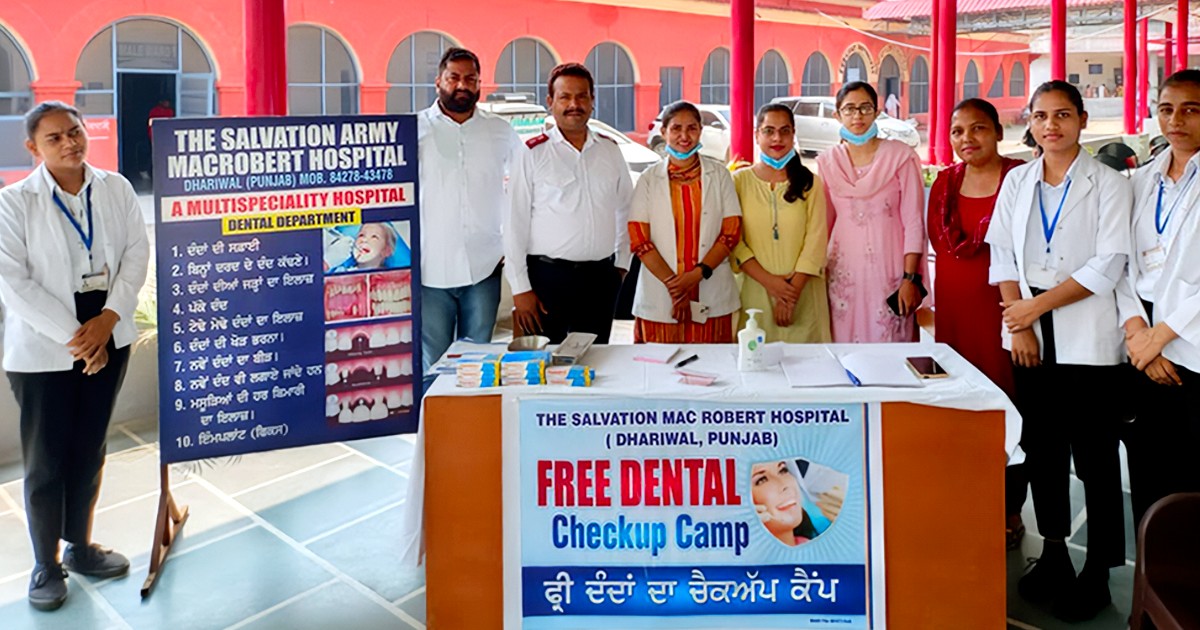Ever since God fashioned garments of animal skins for Adam and Eve in the Garden of Eden (see Genesis 3:21), clothing has not only protected us, it has profoundly influenced our lives. Clothing can express our identity and sense of self, mark us as part of a group or display our social status. Clothing ourselves each day is a deeply political act.
Yet despite the important role that clothing plays in our lives, we rarely think about where our clothes come from or the people who make them. The fact of the matter is that the global manufacturing system is broken. In the cutthroat world of retail, consumer demand for low prices paired with the increasing price of raw materials means companies who are eager to cut costs are left with one choice: cheap labour.
Every year, 80 billion garments are produced worldwide to feed the hunger for fast and cheap fashion, but we have become increasingly disconnected from the people who clothe us—people who make barely enough to feed their families, work in unsafe conditions, or worse, have even lost their lives. In 2013, more than 1,000 garment factory workers in Bangladesh died when their building collapsed.
When we buy a piece of clothing, we often fail to recognize the true cost—that it comes at the expense of those who are most vulnerable.
This is a far cry from God clothing Adam and Eve. Imagine God in the garden, incredibly sad and disappointed in his children for disobeying him, and yet he lovingly stitches together clothing for them, demonstrating his abiding role as caretaker.
When we consider that it was God who first clothed us, it's not acceptable that we exploit the labour of others. No one should ever have to sacrifice themselves so we can wear the latest trend. Cheaply made clothing not only breaks the backs of the workers who supply our wants, it breaks the heart of God.
So what do we do?
We need to rediscover the true value of things and people. We need to recognize the ethical implications of our choices. We need to start asking important questions, such as, “How can I claim to want to live like Christ when I continue to buy into labour practices that exploit and dehumanize the poor?” We who claim to be followers of Jesus need to share God's love in the clothing we choose.
It's not easy to make the commitment to ethical shopping. Yet as ones who are clothed with Christ (see Galatians 3:27), we have a responsibility to protect the poor, the widowed and the orphaned by demanding transparency in manufacturing, and by redirecting our spending to companies and organizations that treat people with dignity.
Where to begin? There are several options:
Perhaps fast fashion seems difficult to overcome. You can't change everything right away. But small changes can make a difference. Human lives are at stake. As we clothe ourselves each day, we can take part in a political act that cares about the vulnerable, the hurting, the exploited. We can fashion a response that says people matter.
Lieutenant Kristen Jackson-Dockeray is the divisional youth secretary in the British Columbia Division.
Yet despite the important role that clothing plays in our lives, we rarely think about where our clothes come from or the people who make them. The fact of the matter is that the global manufacturing system is broken. In the cutthroat world of retail, consumer demand for low prices paired with the increasing price of raw materials means companies who are eager to cut costs are left with one choice: cheap labour.
Every year, 80 billion garments are produced worldwide to feed the hunger for fast and cheap fashion, but we have become increasingly disconnected from the people who clothe us—people who make barely enough to feed their families, work in unsafe conditions, or worse, have even lost their lives. In 2013, more than 1,000 garment factory workers in Bangladesh died when their building collapsed.
When we buy a piece of clothing, we often fail to recognize the true cost—that it comes at the expense of those who are most vulnerable.
This is a far cry from God clothing Adam and Eve. Imagine God in the garden, incredibly sad and disappointed in his children for disobeying him, and yet he lovingly stitches together clothing for them, demonstrating his abiding role as caretaker.
When we consider that it was God who first clothed us, it's not acceptable that we exploit the labour of others. No one should ever have to sacrifice themselves so we can wear the latest trend. Cheaply made clothing not only breaks the backs of the workers who supply our wants, it breaks the heart of God.
So what do we do?
We need to rediscover the true value of things and people. We need to recognize the ethical implications of our choices. We need to start asking important questions, such as, “How can I claim to want to live like Christ when I continue to buy into labour practices that exploit and dehumanize the poor?” We who claim to be followers of Jesus need to share God's love in the clothing we choose.
It's not easy to make the commitment to ethical shopping. Yet as ones who are clothed with Christ (see Galatians 3:27), we have a responsibility to protect the poor, the widowed and the orphaned by demanding transparency in manufacturing, and by redirecting our spending to companies and organizations that treat people with dignity.
Where to begin? There are several options:
- Shop second-hand. Yes, this benefits The Salvation Army, but it also reduces the demand for new goods while offering an economical alternative to fair trade.
- Buy products from companies with transparent supply chains. Companies such as online clothing retailer Everlane provide detailed information on their manufacturing process so consumers can make an informed decision before purchasing. Avoid companies that make no mention of their factories or are known to have unsatisfactory auditing practices. Check out the 2016 Australian Fashion Report for more information: baptistworldaid. org.au/assets/Be-Fair-Section/ FashionReport.pdf.
- Buy fair trade. The World Fair Trade Organization provides an international standard and guarantee system for its members, which commit to fair trade principles and practices throughout their supply chains. The fair trade market is growing rapidly and it is becoming easier and easier to find items produced in a way that contributes to sustainable development. Some of my favourites are: krochetkids. org, iamjustone.ca, etsy.com/shop/ StitchedTogetherUG, thegivingkeys. com, elegantees.com, thelittle market.com.
Perhaps fast fashion seems difficult to overcome. You can't change everything right away. But small changes can make a difference. Human lives are at stake. As we clothe ourselves each day, we can take part in a political act that cares about the vulnerable, the hurting, the exploited. We can fashion a response that says people matter.
Lieutenant Kristen Jackson-Dockeray is the divisional youth secretary in the British Columbia Division.










Leave a Comment